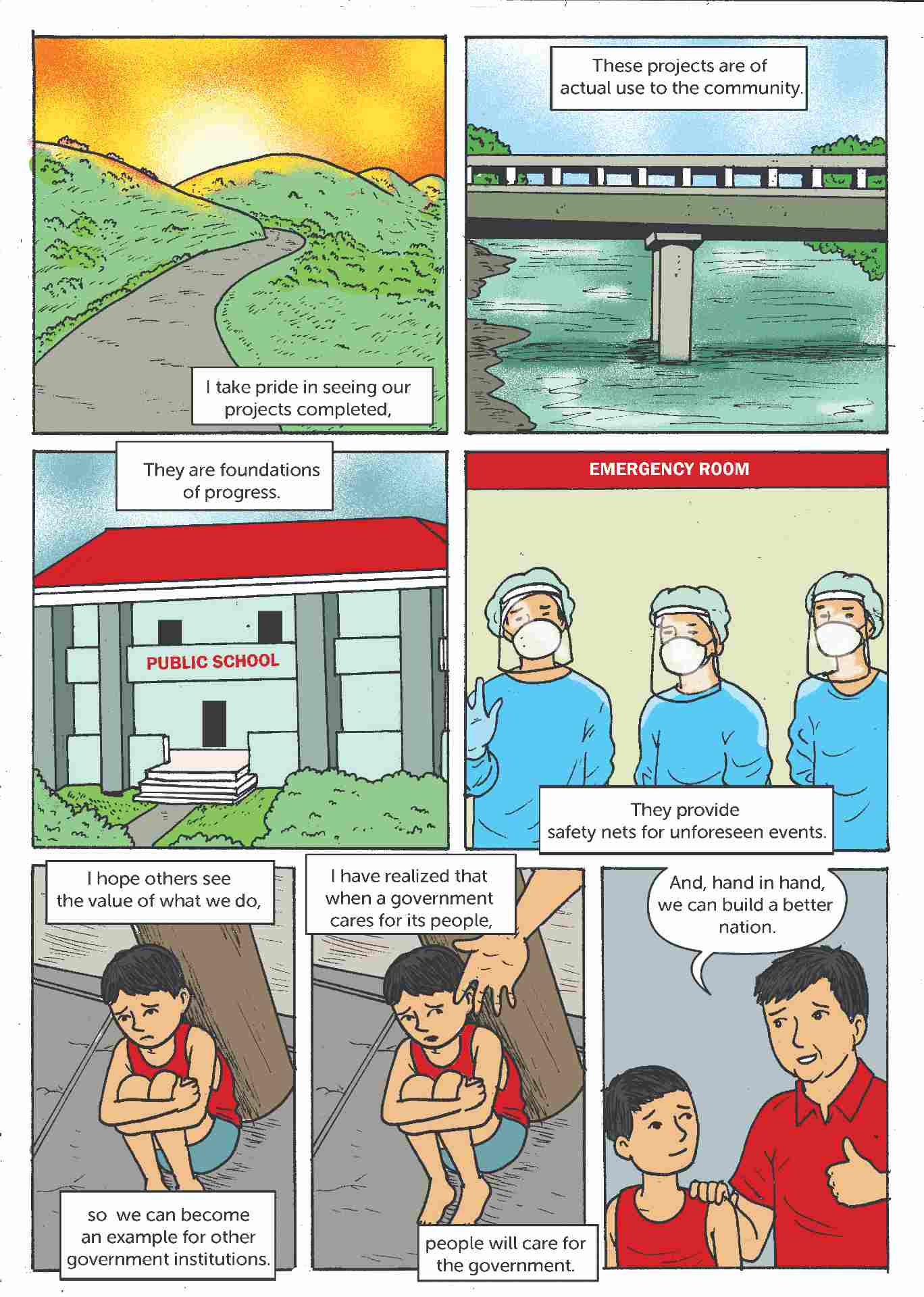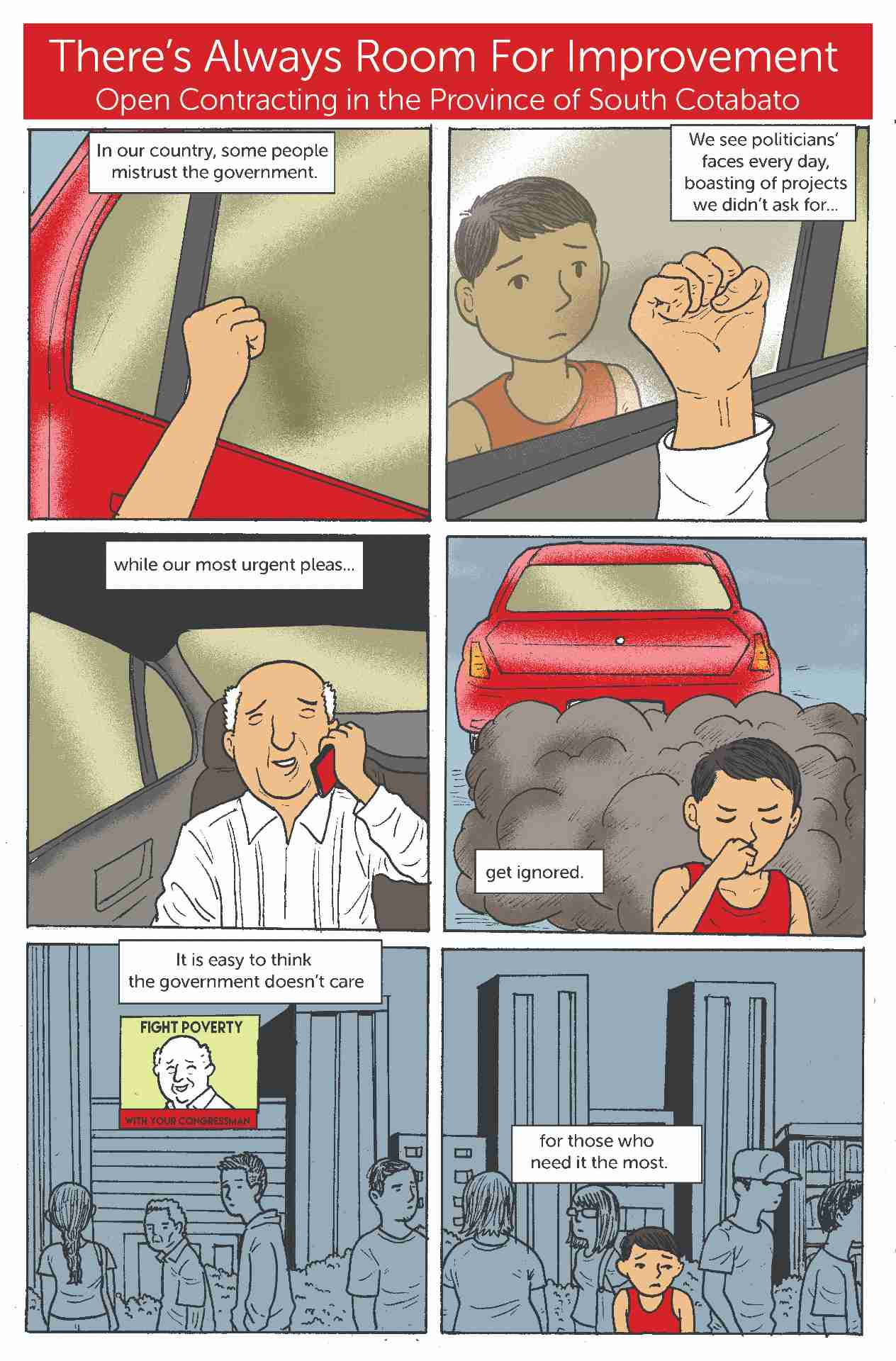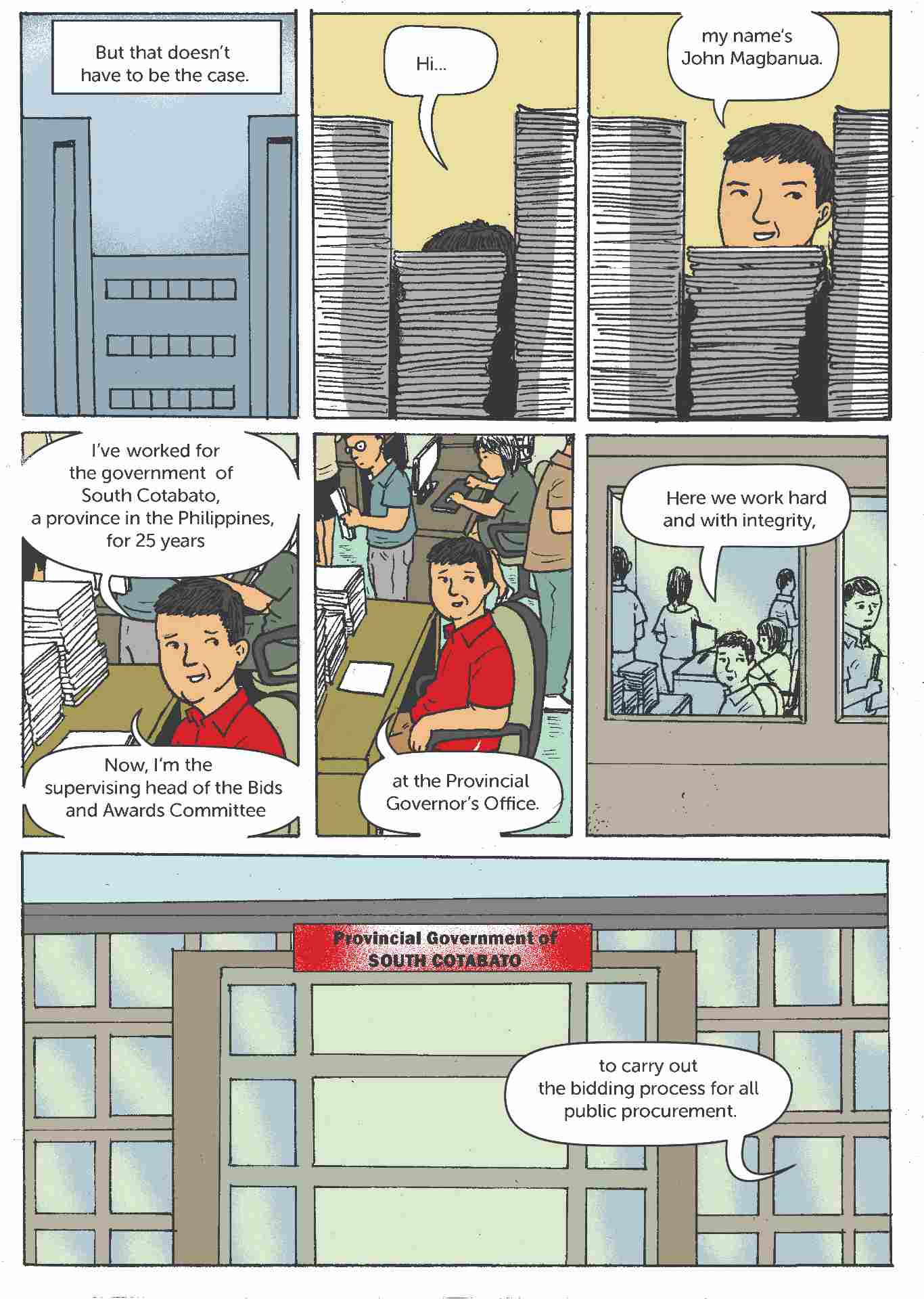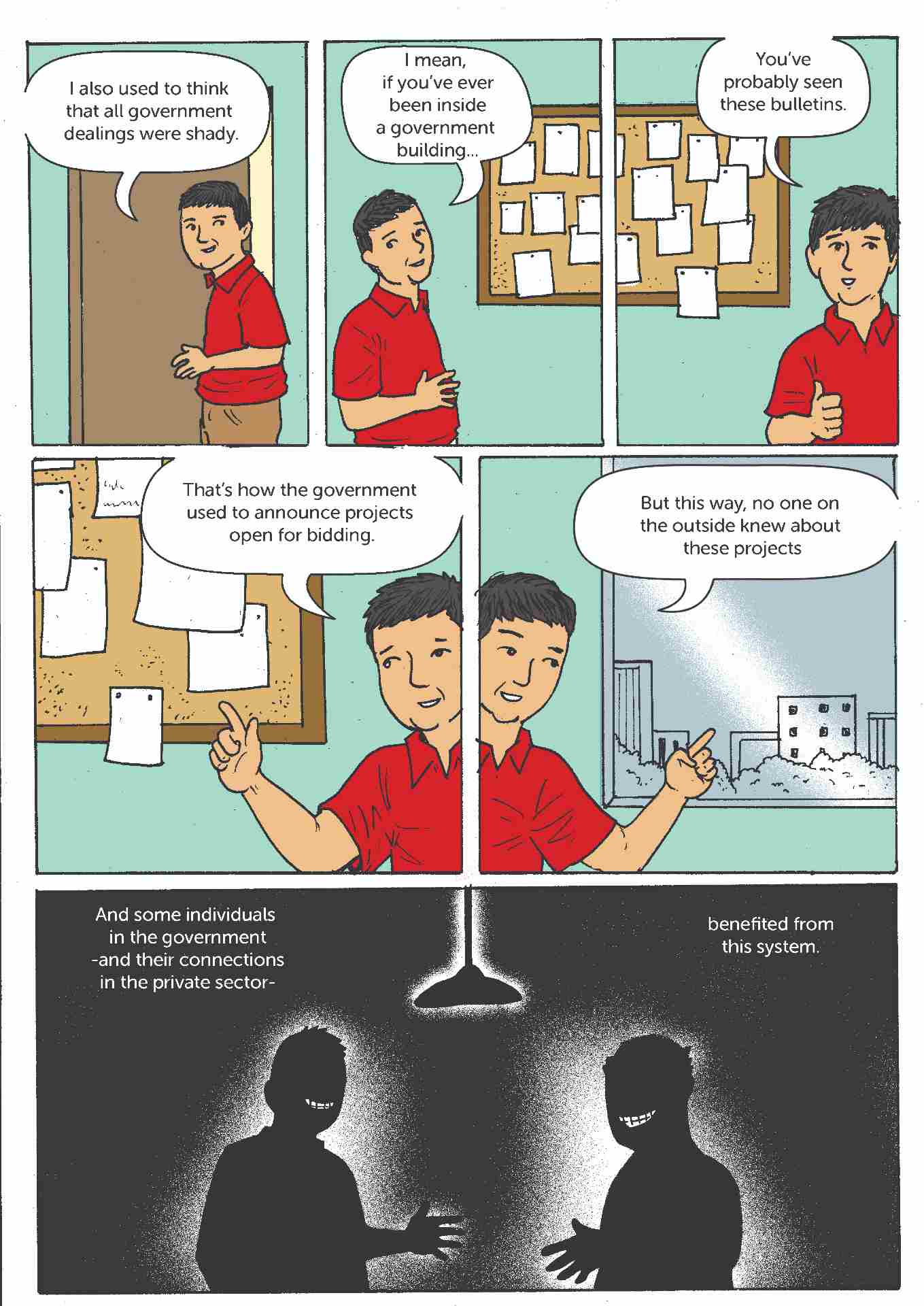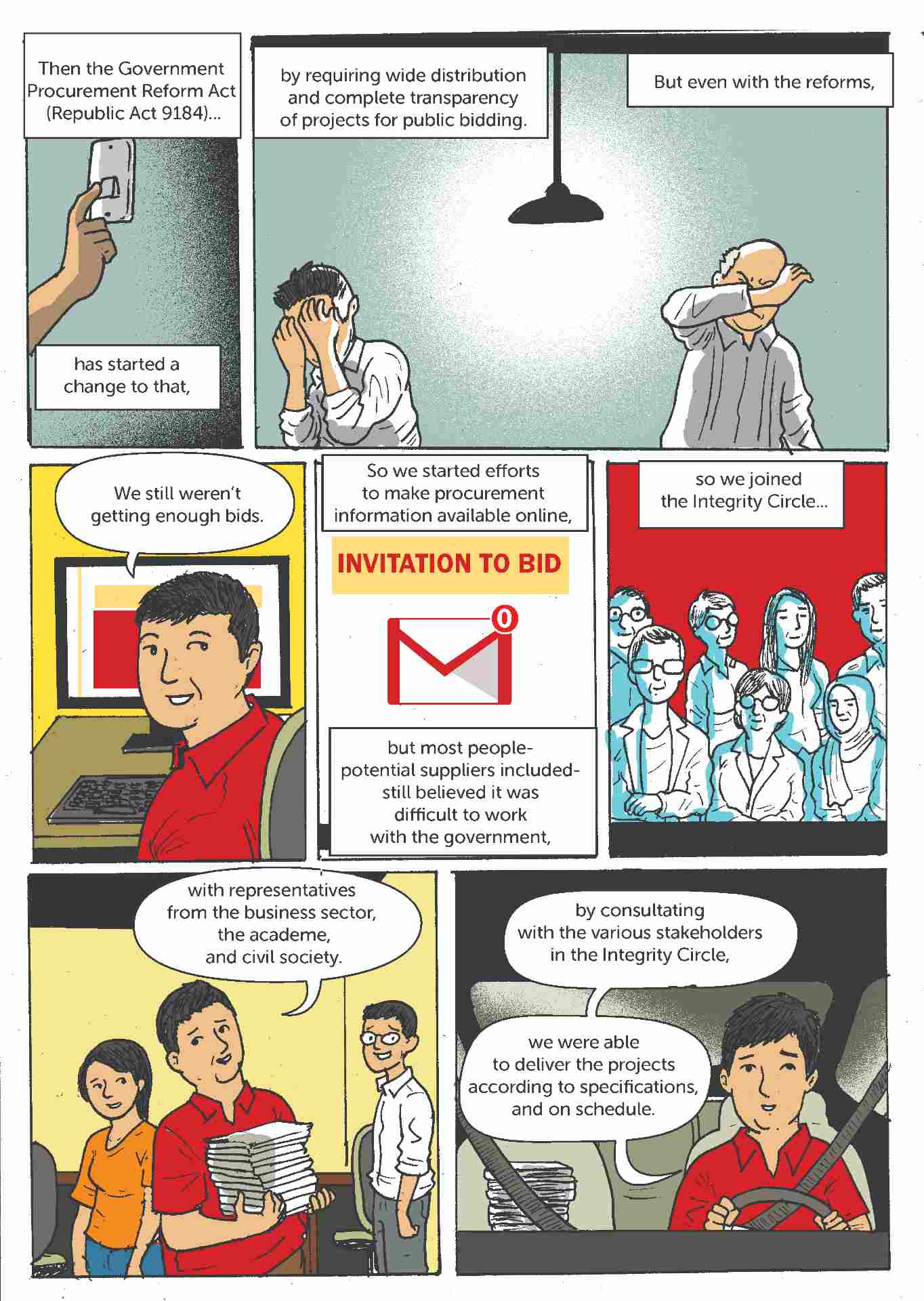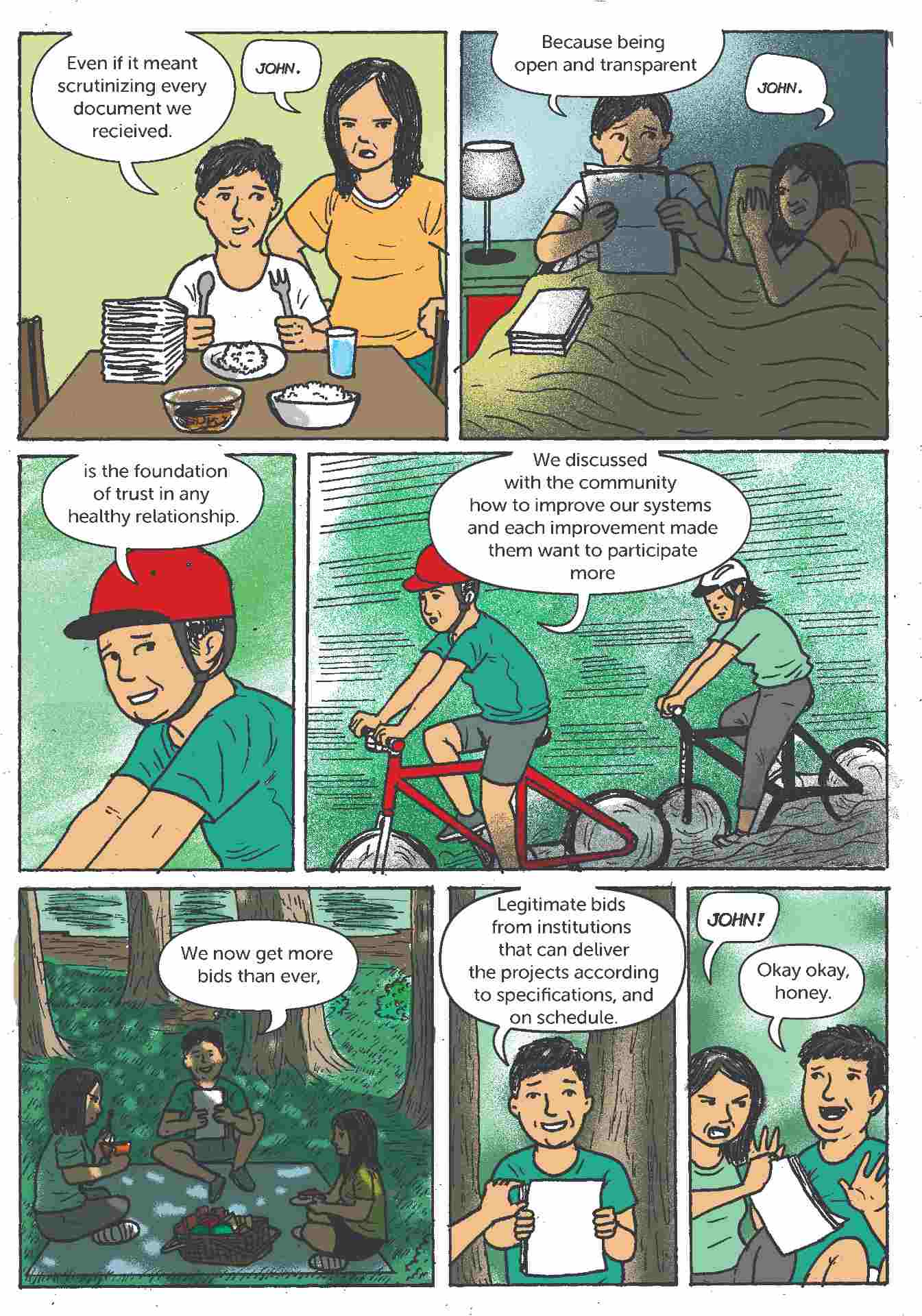Open contracting in the province of South Cotabato
By Adelle Chua
John Magbanua has been working in the provincial government of South Cotabato (in Mindanao, southern Philippines) for 25 years. For 19 of those, he sat on the Bids and Awards Committee, which he thought was doing a good job.
But when Republic Act 9184 - the Government Procurement Reform Act - was passed in 2003, Magbanua soon observed a big difference. The business community became much more interested in bidding for government projects. He saw companies making serious efforts to get access to procurement documents. First, from the bulletin boards in government buildings, then on the provincial government website, and eventually using the Philippine Government Electronic Procurement System (PhilGEPS) website.
But Magbanua still wasn’t that surprised. He knew the provincial government already enjoyed a good relationship with the business community. The private sector participated in some of the local special bodies, and both public and private sectors recognized they were a great help to each other’s objectives and progress.
“It helped that the private sector felt there was an effort to include them in the activities of the Local Government Unit, and that they were not left out,” Magbanua says.
The European Chamber of Commerce of the Philippines (ECCP) had been working with Hivos’ Open Up Contracting program to promote transparency and accountability, and it had been running its own Integrity Circles campaign for many years. In 2018, the ECCP introduced Open Contracting - making the data and documents of public procurement processes accessible - to the South Cotabato government and various stakeholders. But Magbanua doubted whether this was really necessary. “The provincial government was already open and transparent. It strictly complied with Republic Act 9184,” he explains. And his colleagues at the Bids and Awards Committee shared his opinion.
But these days, Magbanua is happy to concede his doubts were unfounded. He witnessed first-hand how the procurement process improved when the province opened up access to the data and encouraged engagement with civil society as well as the business sector.
In March 2019, to show its commitment to transparency, the South Cotabato government under then-Governor Daisy Fuentes issued Administrative Order 02. This established internal rules and policies to improve the procurement process.
With the help from the School of Data and the ECCP, the province was also able to establish its own online portal where procurement data in machine-readable formats could be easily accessed by the public. The portal, launched in June 2019, is undergoing periodic tweaking to be more responsive to the needs of its users.
Through the portal, the private sector is kept abreast of business opportunities. In August 2019, the new provincial governor, Reynaldo Tamayo, issued Executive Order 38-A. This directed the Bids and Awards Committee to exclude private contractors with expired contracts, or those with 15 percent slippage, from bidding on provincial government contracts or Department of Public Works and Highways contracts.
Encouraging results
The results were immediate and straightforward. Here are some comparative figures released by the South Cotabato government:
- Failed bids decreased from 32 in 2018, to just 3 in 2019.
- Completed infrastructure projects increased from 120 in 2018, to 128 in 2019.
- New bidders rose from 173 in 2018, to 202 in 2019.
- Information on 19 projects has been published since the portal’s launch.
According to Magbanua, the Bids and Awards Committee secretariat has also learned much more about the technology used to improve access to procurement data. Suppliers and contractors are more eager to bid for projects. The general public – civil society, media, students/researchers and other stakeholders – now enjoy access to information at all stages of the procurement process, from planning to implementation, and now participate much more in it.
Spreading the word
South Cotabato is the first Local Government Unit to have a permanent Bids and Awards Committee secretariat under the Office of the Governor. And Reynaldo Tamayo, even though he was elected after the Open Contracting commitment was made, immediately got on board the initiative.
“The support of the chief executive is very important,” Magbanua says. “Open contracting goals and objectives are so ambitious that direction and guidance from the top are key to implementation.”
Indeed, the publication of procurement data enables greater transparency and makes possible in-depth analysis of the efficiency, effectiveness, fairness and integrity of all stages of the procurement process.
At the Bids and Awards Committee, they continue tweaking their processes and learning more as they go. Magbanua’s message now is, “There’s always room for improvement, especially in the area of good governance. More importantly, you should always share your lessons and successes with others to help their procurement process and the progress of their own Local Government Units.”
